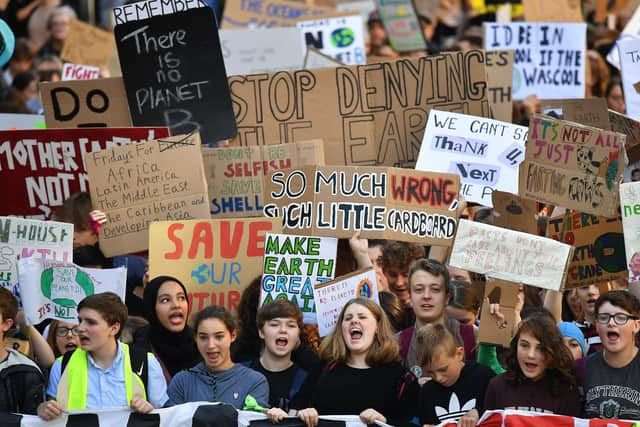Edinburgh climate protest march set to be the biggest in four years. If you go, it will make a difference – Dr Richard Dixon
This week climate protestors will once again take to the streets of Edinburgh. On Friday, the school strikers will boycott classrooms and then, on Saturday, a full-scale march will make its way from the Mound to Parliament. It is expected to be the largest such protest in the capital since 25,000 people marched in September 2019 on the eve of the passage of Scotland’s second climate act.
The peaceful, family-friendly march in Edinburgh is one of hundreds around the world – from Cape Town to Helsinki and from the Cayman Islands to Manila – ahead of the meeting of world leaders in New York for a United Nations’ climate ambition summit. Globally, the call is for an end to fossil fuels and the Edinburgh march has a particular focus on the UK Government’s plan to open more than 100 new oil and gas fields in the North Sea. This includes the proposed Rosebank oil field which is the largest undeveloped oil field in the North Sea. Another big theme will be the proposals for a new gas-fired power station at Peterhead.
Advertisement
Hide AdAdvertisement
Hide AdThere will also be massive march in New York on Monday, two days before the UN summit. In a clever bit of UN diplomacy, only countries which are making good progress on climate are allowed to attend. Rishi Sunak is not planning to go, following embarrassing rumours that the UK might not be welcome.
Last year, climate protestors blocked the port of Aberdeen in protest at the continued expansion of oil production and, in July this year, the UK’s climate camp came to Grangemouth to protest about the petrochemical plants on the site and talk to workers about a transition to low-carbon jobs.
From nuclear weapons to climate change, I have been marching about various things for five decades. Does it make a difference? You have to believe that it does. The massive marches in London and Glasgow against the second Gulf War may not have stopped it but they changed the debate about the UK’s involvement in future wars.
Climate negotiators have to run the gauntlet of protesters every day of the two weeks of the annual UN climate talks, and the protests are frequently mentioned in the official sessions. The Scottish school strikers got an audience with the First Minister in 2019 and the big march they helped organise resulted in an immediate increase in the ambition of Scotland’s targets in the draft climate bill.
Climate protests have an impact on individual choices as well. A new study from Switzerland found that nearly a third of the Swiss population have made positive changes to their transport, buying and recycling choices as a result of the Fridays for the Future school strikes, which were founded five years ago by Greta Thunberg.


With the world’s weather going haywire, 2023 likely to be the warmest year ever recorded, the UK Government supporting yet more fossil fuels and Scotland’s climate plans off-track to meet our current targets, it has never been more important for the public to make their views known. I hope to see you at the Mound on Saturday at 11am.
Dr Richard Dixon is an environmental campaigner and consultant
Comments
Want to join the conversation? Please or to comment on this article.